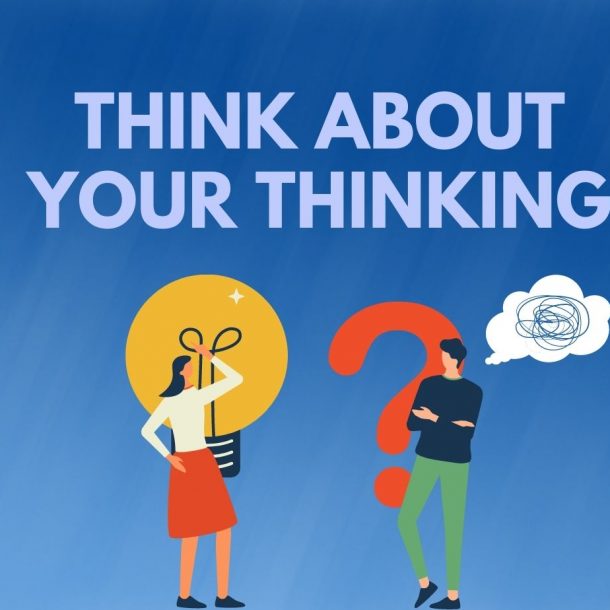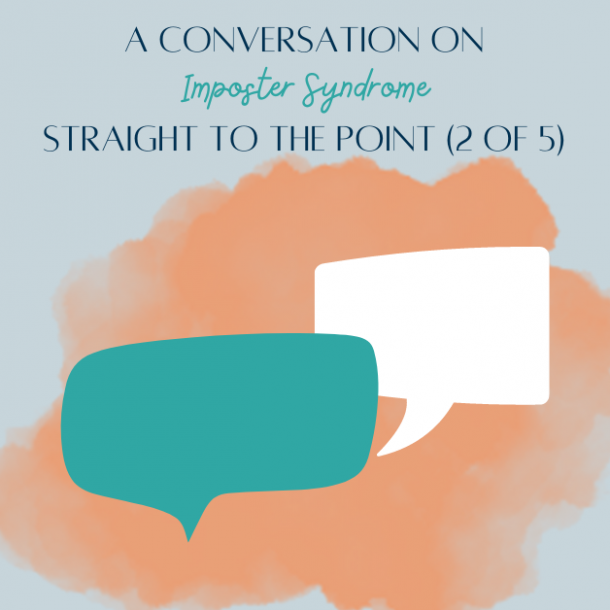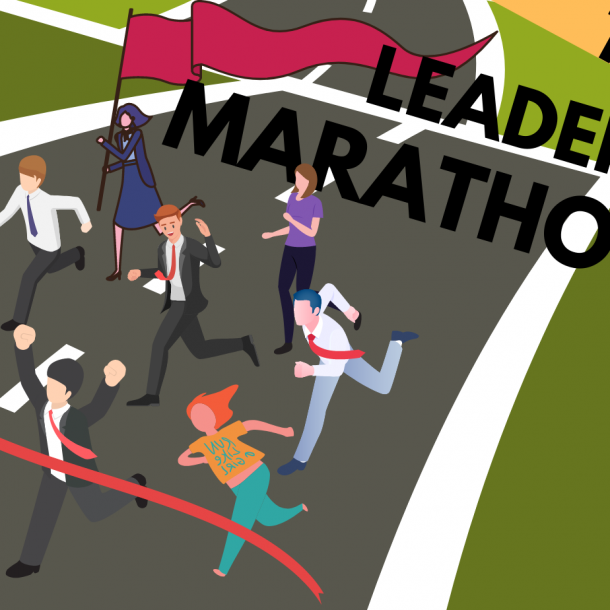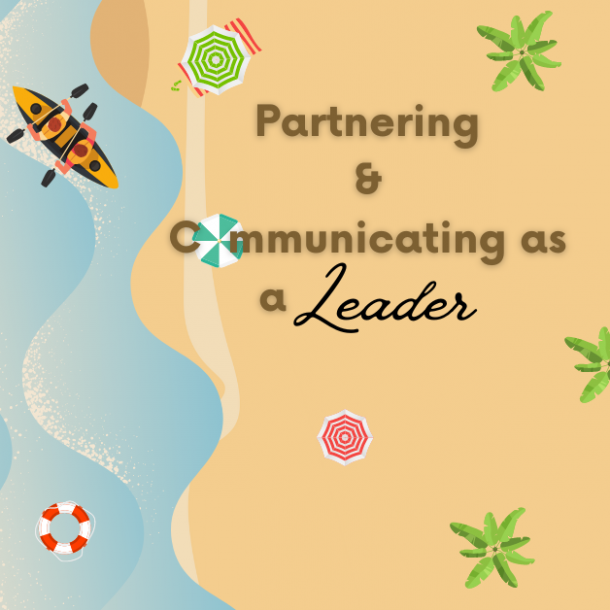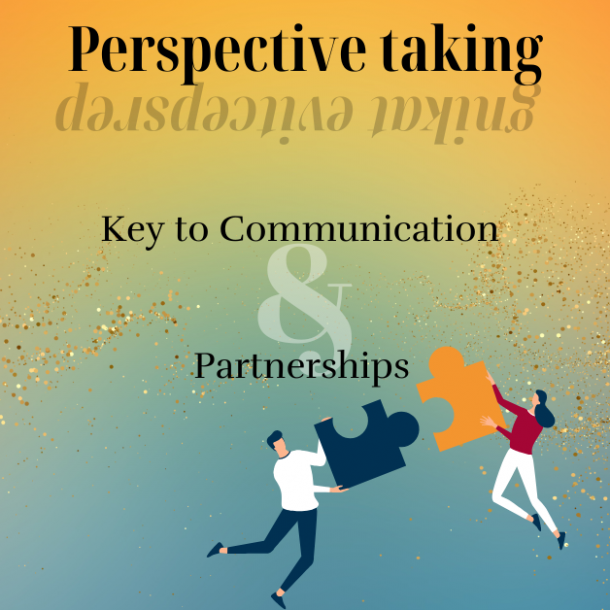
UpSkill: Effective communication requires “style flexing”
So why effective communication?
Your capacity to communicate is often seen as an indicator of ability, intelligence, competence and confidence. The ability to communicate effectively heightens other skills.
Your ability to effectively communicate with others is one of the most important tools for professional and personal success. Across different studies, effective communication is a top skill for both professional and personal success. It helps you to influence others.
This is key, no matter your industry or role. Whether you want to convince customers or coworkers, being able to influence other people is critical to success.
In the previous blog post, we talked about perspective taking, which is one of the skills that’s gonna be critical to you improving your communication skill.
The second skill is the ability to communicate with others the way they want to be communicated with.
That means is that you’re going to need to flex your communication style from person to person, from group to group, because as communication style preferences, change in others. You, the master communicator will need to develop the skill to flex your style, to meet the needs of others.
You wouldn’t communicate with a child the same way you communicate with your boss. When we’re communicating with a boss or someone, that’s a very high stakes situation, we modify our communication style to suit the situation, to suit their needs. That is the habit that we need to practice for all communication.
That means we’re gonna need to take time to figure out different styles. So what are the ideal conditions for effective communication? One of them is just being mindful of and managing the context (the environment within which the communication takes place) because the environment can change the communication drastically.
I want to ensure that as we are thinking about effective communication, we open ourselves up to possibly making mistakes. Don’t walk on eggshells. Have open conversations and use questions.
Questions help you to learn more, to understand where you are and why you’re there. It enables others to have open conversations with you. Make sure you use questions to sensitize yourself to who your audience is and what their expectations are. Things may be more subjective, there may be more empathy required. Use questions, and become an expert questioner.
Here’s what the Harvard Business Review says: Poor communication is usually a symptom of another problem.
That’s why we talk about context. That’s why we’re talking about a number of other things in this conversation about communication. Miscommunication is a challenge for us. While we can acknowledge its existence, we don’t tend to think that we participate in it.
One study showed that 50% of employees say they are “never,” “almost never” or “rarely” involved in workplace miscommunication. However, 81% of the same employees see the workplace, miscommunication as happening frequently. Very frequently or occasionally. So we know miscommunication happens, but we don’t accept a role in it. And so we want to shift away from that to recognize that we are part of the reason miscommunication happens. And so we’re going to move forward in learning what we need to do to improve our own communication skills.
According to Tony Robbins to effectively communicate we must realize that we are all different in the way we perceive the world and use this information as a guide to communicating with others. So what are some things affecting your communication?
If you think “we always do it this way,” please consider shifting to “I’m operating in my comfort zone.” If you’re thinking “my way is better,” or “our way is better” then you need to reframe. Ask yourself the question, “What am I missing?”
“What questions do I need to be asking?”
“What are the flaws in my thinking?”
Come back and ask “What unconscious thoughts are guiding me.”
Your job as an effective communicator is to convey meaning. So if someone doesn’t understand, take responsibility. A real key is listening. And when we talk about listening, sometimes we limit it to the process of hearing or receiving the information.
I want you to always remember that when we are listening we want to hear more. We want to gain more. We want to understand the perspective. And that means we are in learning mode. When we’re listening, we’re interested. We’re not judging. We are seeing if there is anything that we can get out of the message.
Most importantly, listening is seeking and receiving feedback and using the feedback to benefit you.
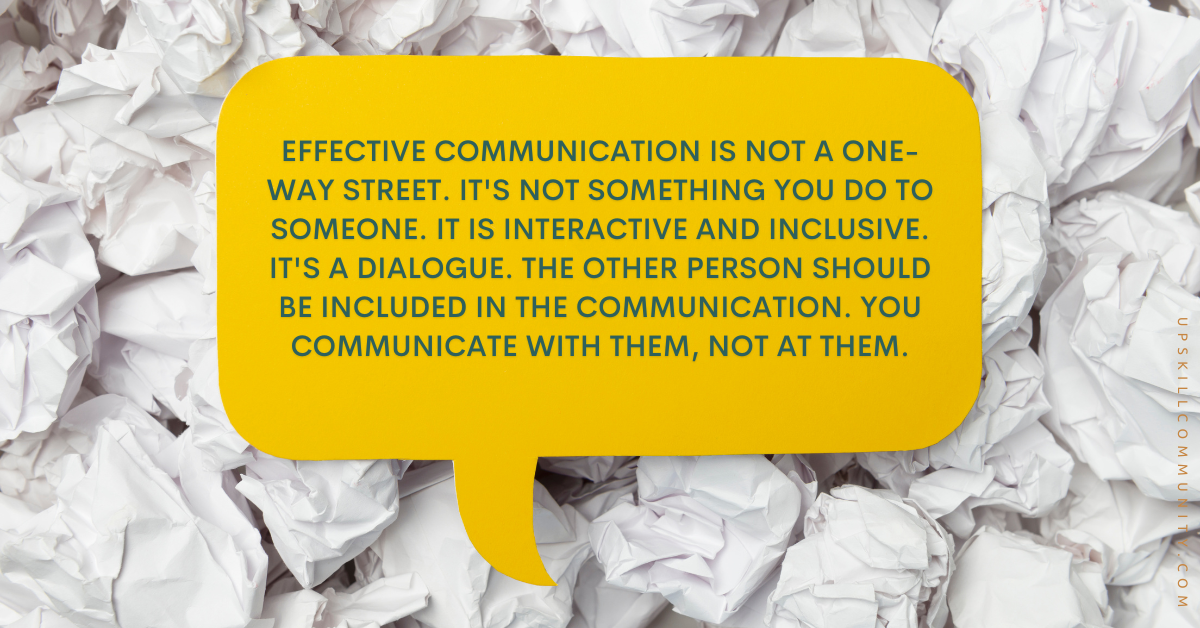
There are many communication barriers that impact us, and I want you to think about a few: your word choices, and the context. Then we have the conundrum of what we say directly versus what we imply. What’s implied versus inferred? Direct vs. indirect. What is denoted versus content? What is the intention versus impact?
These are things we must be more mindful of in a sensitized environment where everybody’s areas are primed to listen deeper and read between the lines. Please open up and think, and understand that the little “slips” that slipped before are harder to excuse now.
Ask questions, listen and be a little more intentional.
Understand that effective communication is not a one-way street. It is not something you do to someone. It is interactive and inclusive. It is a dialogue. The other person should be included in the communication. You communicate with them, not at them.
A good communicator also has cultural humility. You don’t make assumptions. You enter spaces with openness and willingness to interact in respectful, considerate ways.
You confirm understanding of conversations, during conversation and afterwards via email, text, and phone calls. “Are we on the same page?” “So as I understand we’re…”
You ask questions. You filter your ego. You filter your emotions. You can shift your mindset frequently. Be intentional about improving the way you communicate with others.

